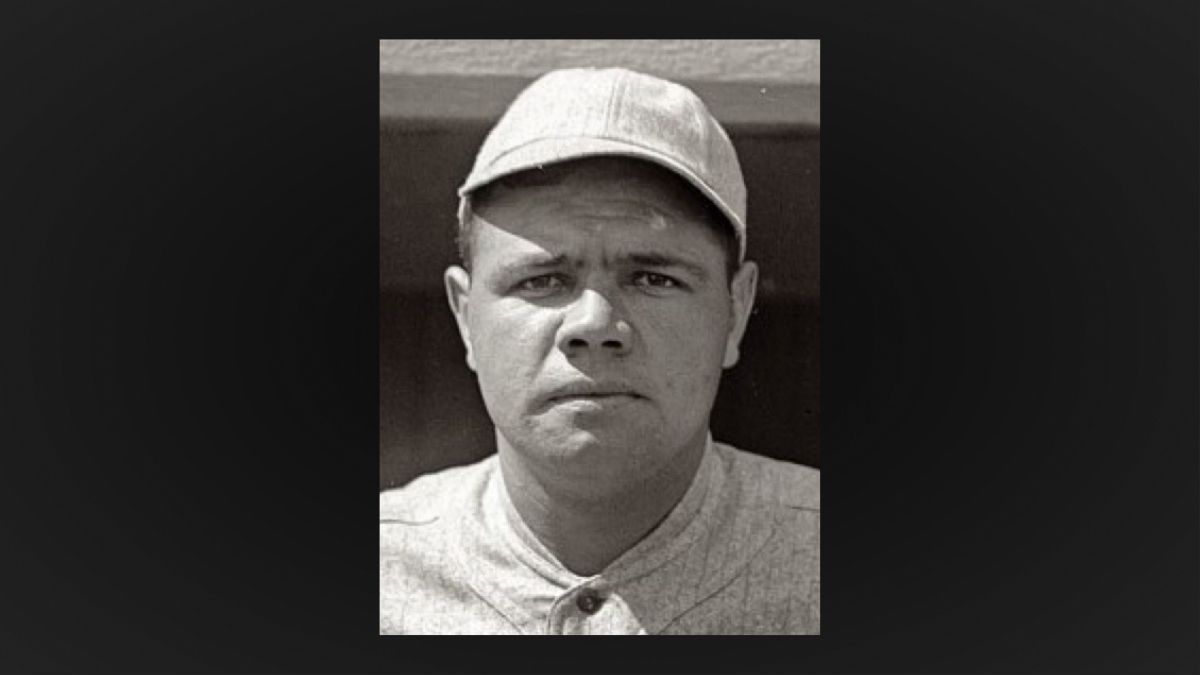George Herman Ruth, widely known as Babe Ruth, is considered to be one of the all-time greats of baseball. Over the course of his career, from around 1914 until his retirement in 1935, he became one of the most celebrated athletes in the United States.
Alongside his athletic prowess, many speculated about his ancestry, particularly because of his appearance. Ruth had a wide nose and full lips — characteristics often associated with people of African ancestry — which led to questions as to whether he was partly Black.
In April 2021, Dominican American comedian and television personality Joel Martinez, professionally known as The Kid Mero, tweeted an old colorized picture of Ruth with the claim, “Oh nah, he Dominican AF.”
Mero has been making this claim for a while, including on his show “Desus and Mero,” back in 2017:
For years, many speculated that Ruth was at least partly Black, even during his time as a player, where according to some accounts he faced racist taunts over his appearance. But we know that nothing definitive has emerged to support these claims.
What we do know is that Ruth’s family was made up primarily of ethnic Germans. According to a biography of Ruth, “The Life that Ruth Built,” by Marshall Smelser, a baseball scholar, the Ruths were of German descent:
The name Ruth may be from the low-German common noun Rut, meaning “root” in English. Or it may be an Americanized Rilthe, which means “wand” or “rod” and would be a good word in Germany for “ball bat.” Whatever it means, it is a German family name. The present Ruth family believes George Ruth’s paternal grandfather was Peter Ruth, born in Bucks County, Pennsylvania, in 1801, who married Kaziah Reager, born in Lancaster County in 1805. The strain is pure Pennsylvania Dutch. Young George was supposed by some to have known a little German. If he did, he didn’t get it from the Ruth side of the family. Pennsylvania Dutch resembles the German from which it degenerated, but it is Pennsylvania Dutch and nothing else. We don’t know when the Ruths moved from Pennsylvania.
Ruth grew up in Baltimore, where his father ran a saloon. According to the Maryland Genealogical Society Journal, Ruth himself said his father was of "German extraction," but was largely silent about his paternal ancestors. His father also filed for divorce from his mother when Ruth was 11 years old, accusing her of "infidelity and drunkenness." They later reconciled, but were reported to be estranged at the time of his mother's death.
Confusion also reigned about the identity of Ruth's paternal ancestors because of Claire Ruth, his widow's, reportedly mistaken assertions that were mentioned above in "The Life that Ruth Built." According to some biographers, Peter Ruth and Kaziah Reager were Ruth's paternal great-grandparents, and not his grandparents, and Claire may have been mistaken about Peter's birth information.
The journal concluded that:
[...] analysis and correlation of the evidence from a range of original sources—censuses, city directories, church records, vital records, newspapers, immigration records, and court records—clarifies his paternal line from his father, George Herman Ruth Sr., to his grandfather, John Anton Ruth, to his immigrant Ruth ancestor, his great-grandfather Jacob Ruth [...] Genealogical research gives substance to Babe Ruth's laconic statement, "My father was of German extraction."
Ruth did, however, frequently support Black players. His daughter believed that he would have become a manager after his retirement but was prevented from doing so, because of the “fear that he would have brought in black players, years before Jackie Robinson broke the color barrier in 1947.” According to The New York Times:
Ruth also was known to frequent New York City’s Cotton Club and befriended Black athletes and celebrities. He once brought Bill Robinson, a tap-dancer and actor known as Bojangles, into the Yankees’ clubhouse. Robinson also was with Ruth during the 1932 World Series in Chicago, and at the game when Ruth was said to have called his home run. When Ruth died in August 1948, Robinson was an honorary pallbearer.
In 1942, Ruth also joined 49 other prominent German Americans in publicly denouncing Adolf Hitler, Their “Christmas Declaration” appeared in a full-page New York Times advertisement, and in nine other newspapers. Ruth died in August 1948.
Given that we have no evidence presently available that Ruth's ancestry was Black, or Dominican for that matter, but plenty discussing his German heritage—even if some of the details surrounding his paternal ancestors was disputed—we rate this claim as “Unproven.”

